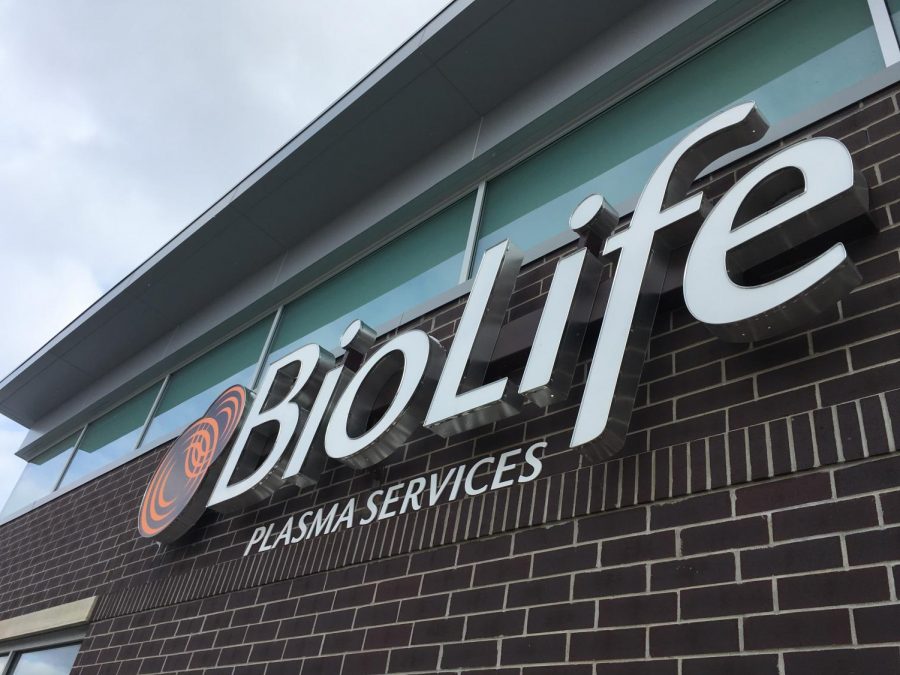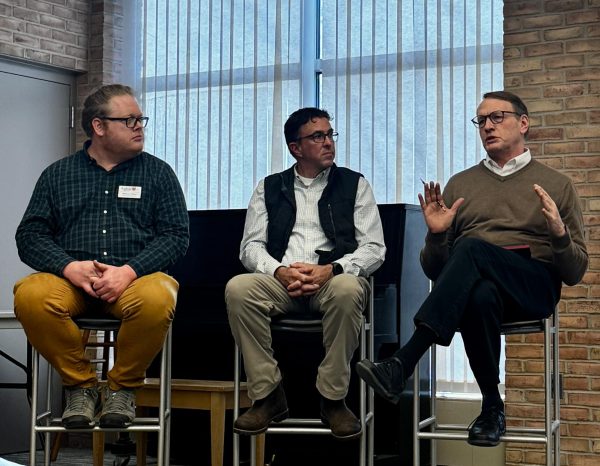Plasma donation an attractive moneymaker for students
At BioLife, at the corner of East Paris Ave. and Sparks Drive in Grand Rapids, less than a liter of plasma and an hour and a half can earn students $20-50. Photo by David Fitch.
For many Calvin students, plasma donation, though unpleasant, presents a way for quick cash.
These students have been visiting BioLife Plasma Services, usually at the East Paris location, for anywhere from a few months to a few years.
For some student donors, the process is an infrequent way to make some ends meet—a quick, money-making remedy. However, for donors like senior Andrew Hendricksen, it has become a practice:
“I donate twice a week, which is the maximum number of times you’re allowed to donate in a seven-day period,” he said. “I am pretty indifferent about the process at this point in time, simply because it has become such a routine part of my weekly schedule.”
Plasma is obtained through a process called plasmapheresis, in which an automated machine extracts whole blood through an IV. The plasma is separated from the red and white blood cells and platelets, which are then returned to the donor. This takes about one and a half to two hours. Roughly 600-800 milliliters can be safely drawn from a donor each time they go through the procedure.
Plasma mainly goes toward plasma protein therapy. It assists with clotting issues and helps in the healing process. Plasma also contains antibodies, which fight off infection; when extracted, the plasma can fight hepatitis A and B, as well as tetanus.
According to BioLife, the plasmapheresis process takes 20-40 minutes longer than a blood donation because of the separation; however, because the cellular components are returned, donors can donate twice a week.
Though the experience is benign for some students, for others, it can be stressful.
“I hate donating,” said first-year student Austin Kanis. “My first time consisted of sheer terror and I feel anxious and uneasy every time I donate now.”
For junior Nathan Fitch, the process can be sometimes be nauseating.
“This is probably due to all the blood around,” he said. “You can see other people’s blood in the clear tubes that they use in the machines. Sometimes seeing that gets to me.”
But despite the discomfort, many students find the process worth the money.
BioLife pays donors $20 the first time they go during a week and $50 for the second. They also offer promotions: donors who give eight times in a month get an extra $50 and first time donors receive $50 instead of $20 their first few donations. All of the money the donor earns is deposited onto a BioLife debit card, which can be spent at the donors’ convenience.
For some students though, the payment presents an ethical quandary. Senior Drew Folkerts said donating for pay left him with feelings of guilt. But when donating without payment for Michigan Blood, Folkerts says he felt better.
“I am still a little confused as to why I felt guilty,” he said.









